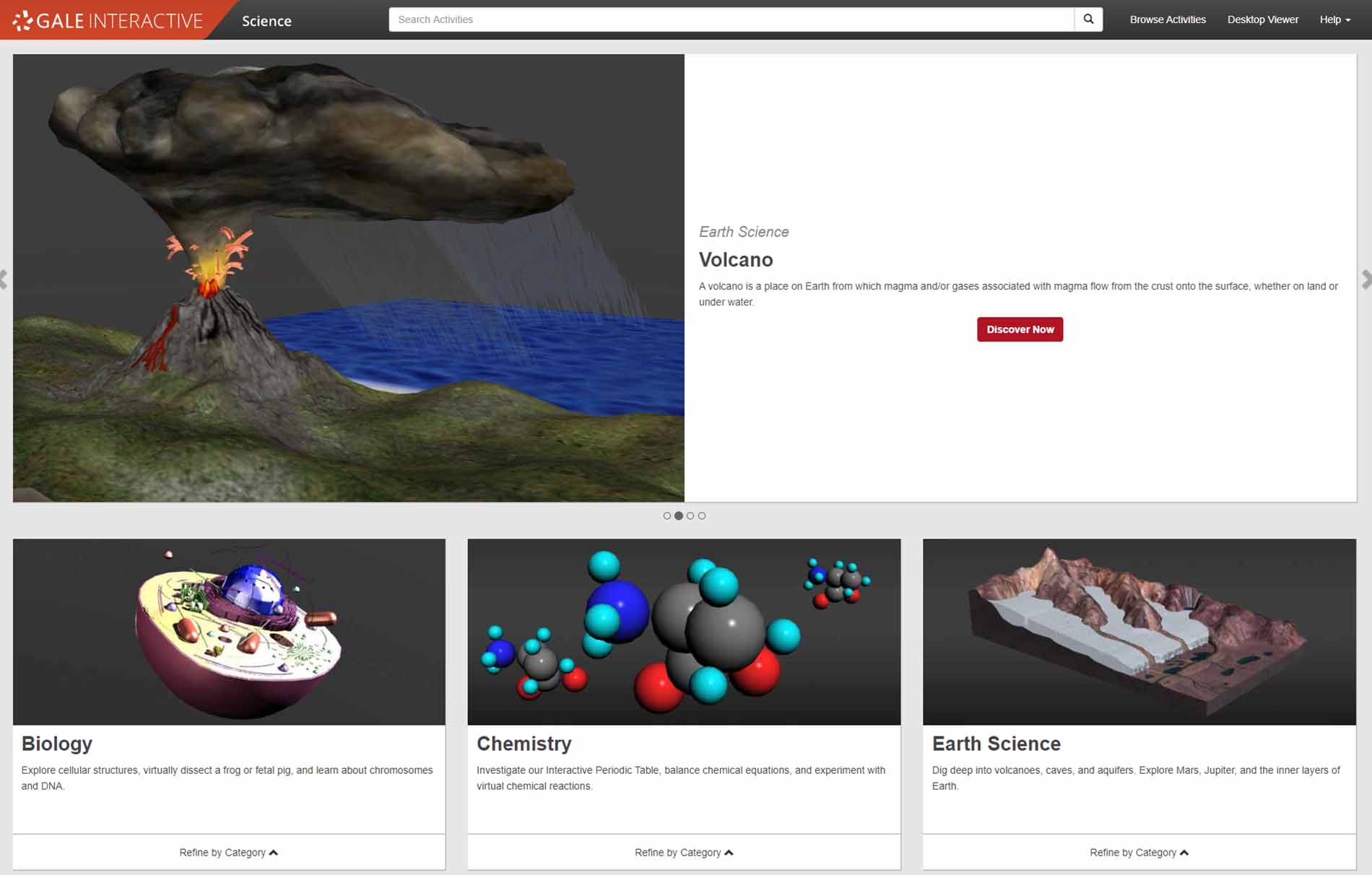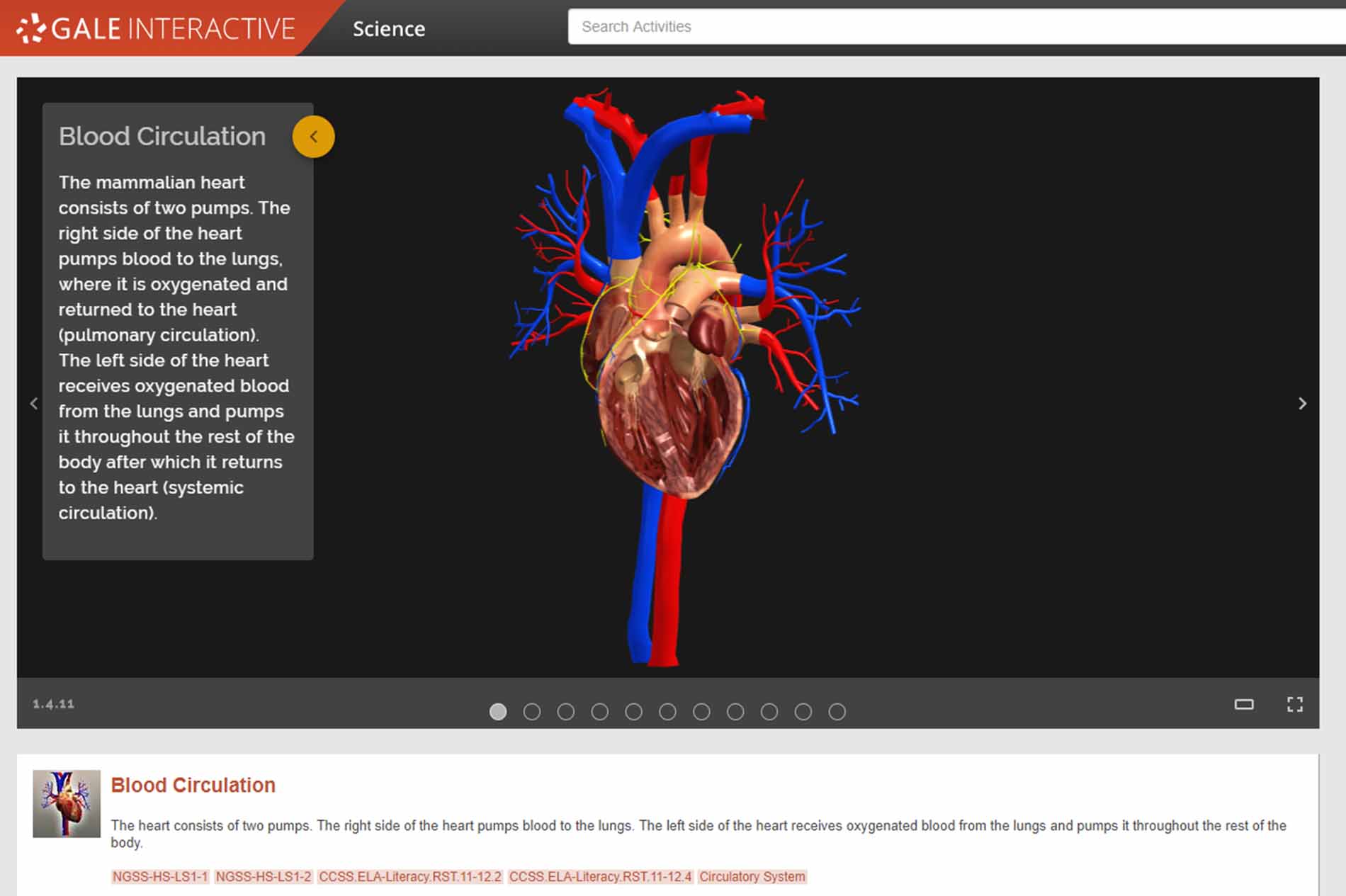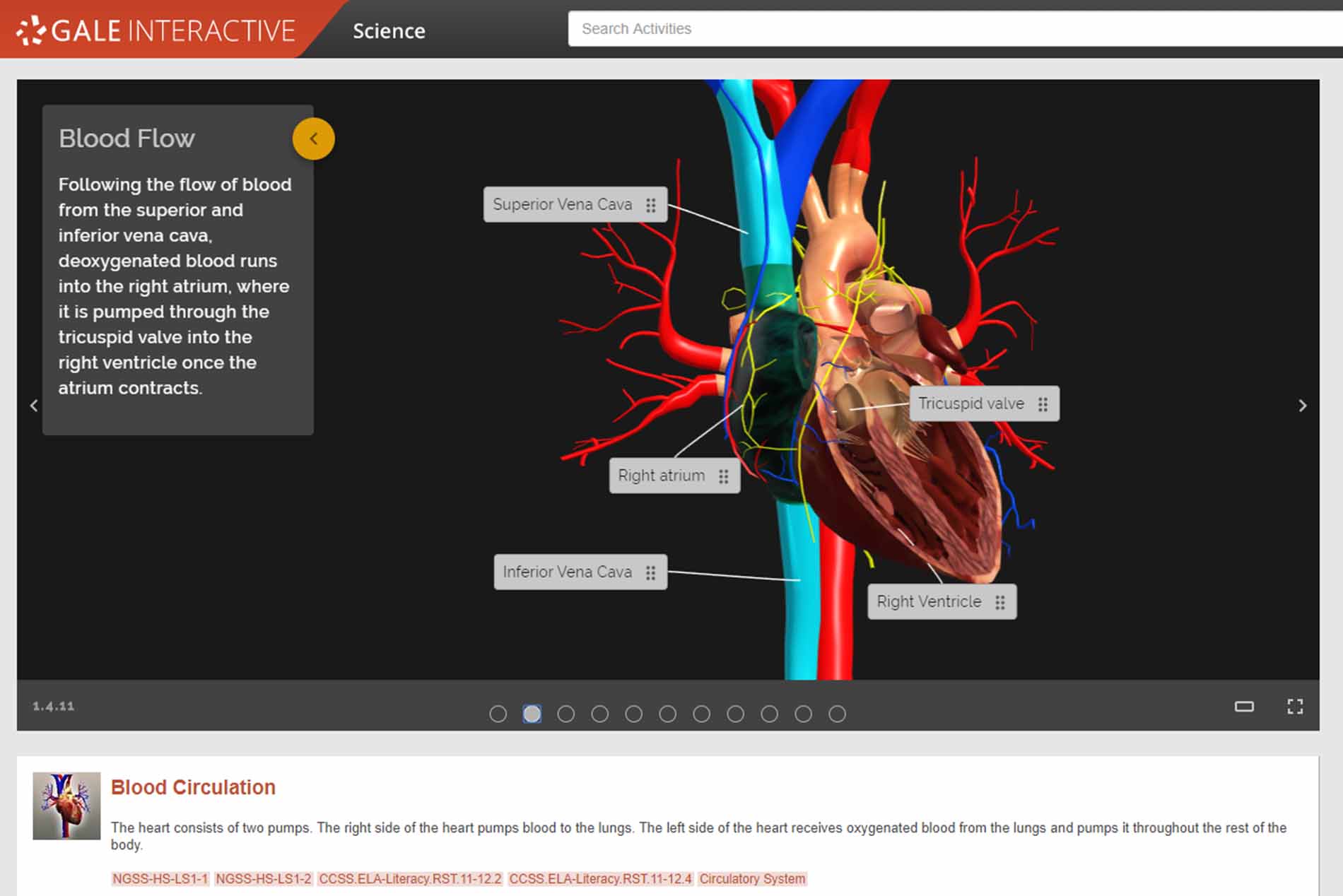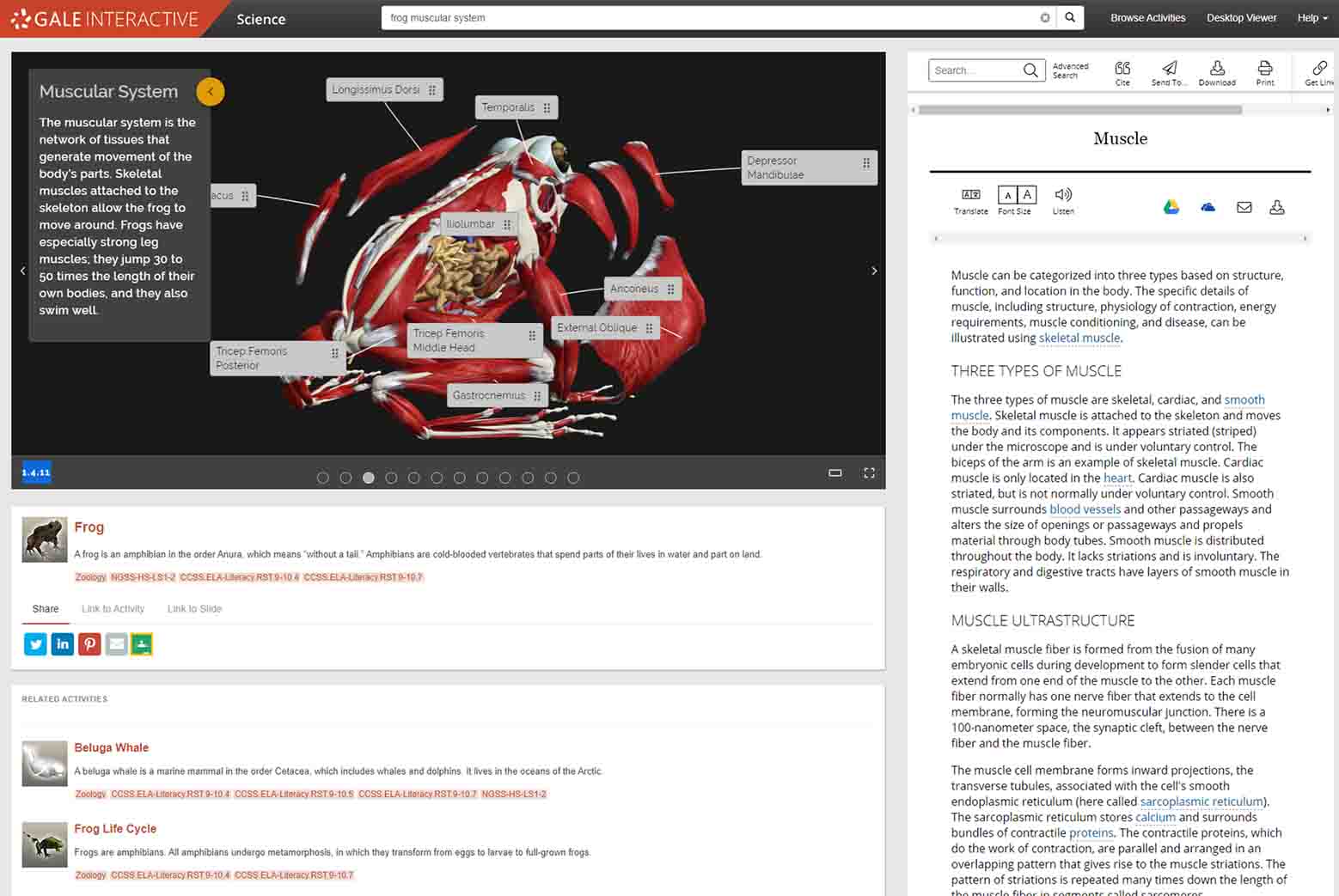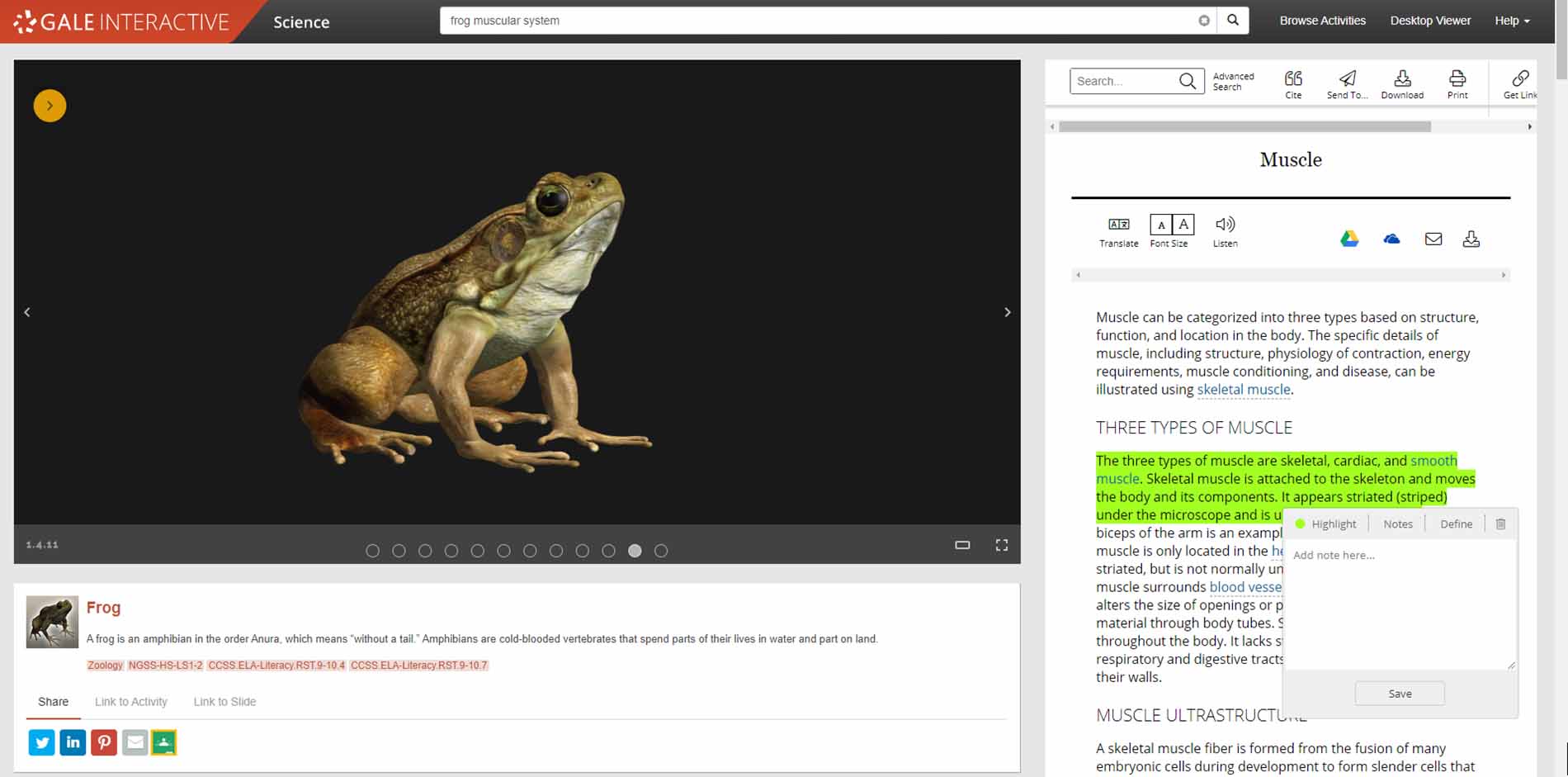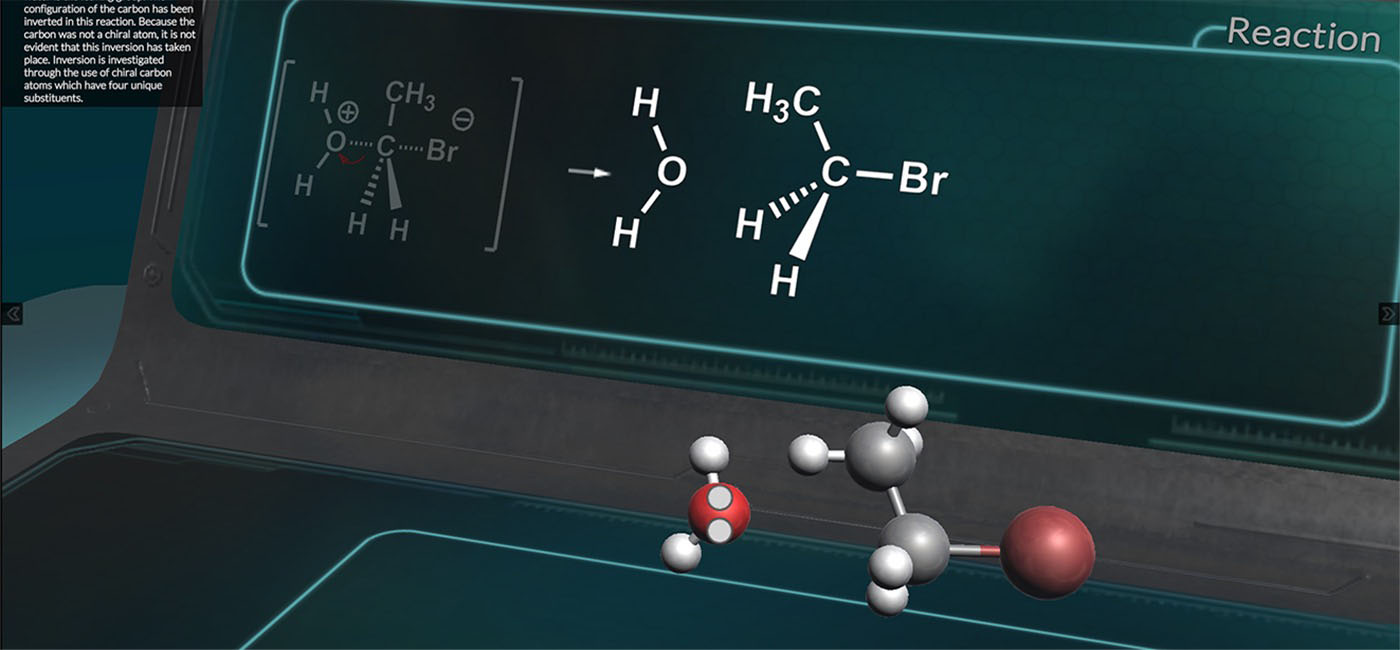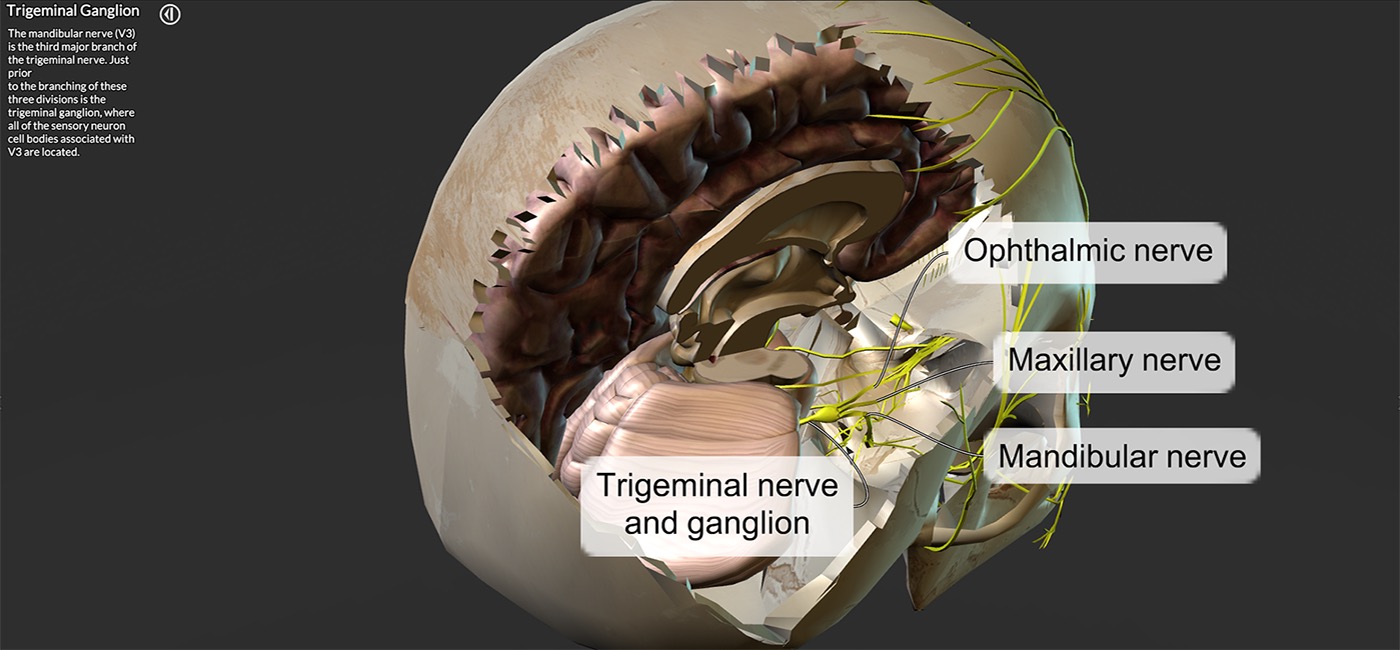Empower Wide-Eyed Enthusiasm with 3D Science Lessons and Virtual Experiments
Imagine what it would be like to learn complex science concepts with more confidence and less fear. Gale Interactive: Science is a virtual lab that gives students in middle and high school grades the power to see beyond static text and embrace learning outside of the classroom.
Going beyond textbooks and traditional science curriculum, Gale Interactive: Science is a highly visual online learning tool that takes visual-spatial learning to the next level by bringing the lab to the classroom. High-value, rich-media digital content selected from authoritative classroom resources—like Gale In Context: Science and Gale OneFile—is paired with interactive 3D models to deliver a virtual laboratory simulation experience for students in middle school and high school grades. Students can entertain their curiosity and inspire grade improvement through an experience that allows zooming in, rotating, or pulling models apart to explore and experiment with complex scientific topics.
Unlike other virtual science labs, this resource can help teachers create lesson plans, enhance how they teach in-classroom scientific demonstrations, and give students a deeper understanding of science with the help of science teaching tools. Teachers are able to build lesson plans integrating project-based teaching and learning with curriculum-aligned reference and periodical content. Its interface facilitates in-depth learning through simulations and virtual science experiments to examine complex systems, such as movement in the solar system, Earth’s weather patterns, biology concepts, growth of organisms, basic engineering practices, the water cycle, and frog dissection. Gale Interactive: Science also includes guided lessons and self-quizzing lab activities that correlate to the curriculum at the end of each session.
With more than 200 interactive science lessons correlated to Next Generation Science Standards (NGSS) and Common Core State Standards—covering science curriculum topics in biology, chemistry, and earth sciences—students will not only enjoy learning, they’ll comprehend complex topics more easily.
Explore more hands-on, inquiry-based learning interactions. Gale Interactive: Science includes 60 do-it-yourself 3D printer projects to bring science to life. Models range from a plant cell to a tapeworm to a variety of animal and human body systems that meet specific educational science standards.
Looking to explore advanced teaching or learning solutions? Aligned to the scope and sequence of introductory college classes, Gale Interactive: Chemistry and Gale Interactive: Human Anatomy engage first- and second-year students with science simulations to further their academic study and science practices.
Technology Partner

VIVED is shaping the future of educational content creation in the sciences. VIVED leverages leading technologies to enrich student outcomes through 3D content and simulations. Employing top creative professionals in software engineering, 3D modeling, student experience design, and science education curriculum, VIVED delivers cutting-edge content accessible across all devices and platforms of today’s classroom.
FEATURED REVIEW
"Interactive online testing has recently increased the demand for science educators to offer more interactive and virtual science resources, and this database meets this demand and more... highly recommended."
- School Library Connection
Look Inside
Additional Details
subjects covered
- Science & Technology
- Biology
- Chemistry
- Earth Science
Platform Features & Tools
Interactive 3D Model Sessions
Explore and manipulate 3D models in over 200 guided sessions to dive deep into science concepts.
Curriculum correlation
Sessions are correlated to Next Generation Science Standards and Common Core State Standards.
Workflow Tools
Google Workspace for Education and Microsoft Office 365 tools enable users to share, save, and download content—including highlights and notes. Learn More
Reviews & Testimonials
"NSTA recommends Gale Interactive: Science. This program has implications for 'flipped classrooms.' Teachers can assign specific activities to students and the program has social media icons. Science is certainly worthwhile to consider."
“Schools fortunate enough to have 3D printers can download STL files for 60 make-it-yourself projects, ranging from a tapeworm to a turbine engine to human body parts. Full citations are included for all materials. This interactive tool will be helpful in conveying abstract concepts and spicing up presentations. Equally effective in face-to-face, virtual, or flipped classrooms, this is an engaging and recommended addition for high school collections.”


